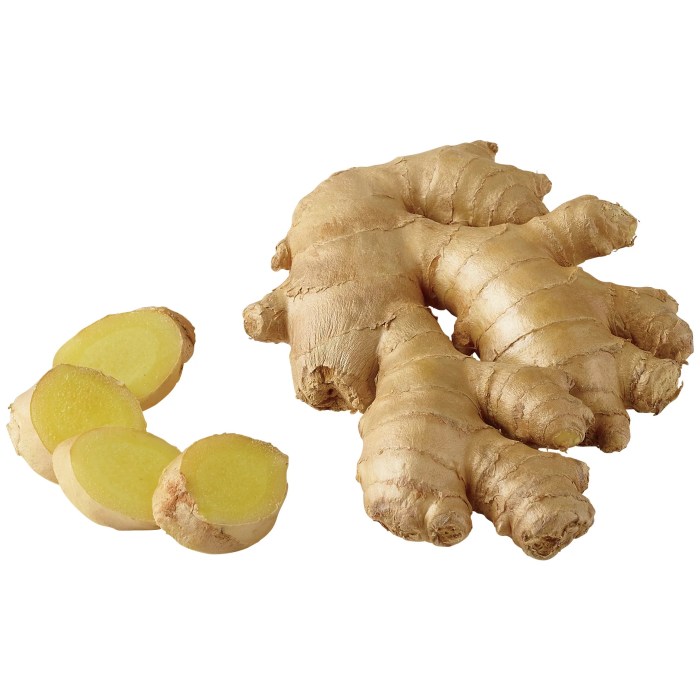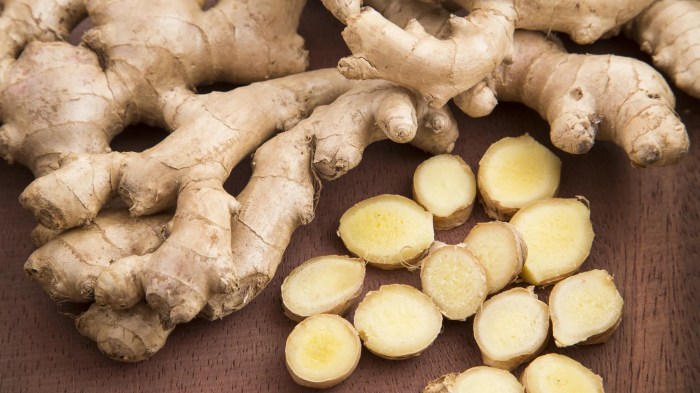Ginger Root in Different Diets

Ginger root nutrition facts – Medan’s got its own spicy kick, and ginger’s right there with it! This root isn’t just for flavour; it’s a nutritional powerhouse that fits seamlessly into various diets. Let’s explore how to spice up your eating plan with this amazing ingredient.
Understanding ginger root nutrition facts, such as its anti-inflammatory properties, is crucial for balanced eating. However, it’s important to consider the nutritional context of your entire diet; for example, you might compare the nutritional impact of ginger to a high-fat dressing like nutrition facts for creamy italian dressing. Returning to ginger, remember that mindful consumption, considering its impact alongside other foods, supports overall well-being.
Ginger’s versatility makes it a fantastic addition to a wide range of dietary approaches. Whether you’re a veggie lover, a strict vegan, or following a ketogenic diet, there’s a way to incorporate ginger’s benefits into your meal plan.
Ginger’s Role in Various Diets
The following table illustrates how ginger can be easily incorporated into popular dietary plans. Remember, always consult with a healthcare professional or registered dietitian before making significant dietary changes, especially if you have underlying health conditions.
| Dietary Plan | Incorporation Methods | Recipe Examples |
|---|---|---|
| Vegetarian | Added to stir-fries, soups, curries, and smoothies. Can be used in baked goods like ginger bread or added to chutneys. |
|
| Vegan | Similar to vegetarian, ensuring all other ingredients are also vegan. Great in vegan curries, smoothies, and as a flavour enhancer in vegan baking. |
|
| Keto | Ginger adds flavour without significantly impacting carbohydrate intake. Use sparingly in keto-friendly dishes. |
|
| Paleo | Ginger is naturally paleo-friendly and can be used in various ways, similar to keto. |
|
Adjusting Ginger Usage Based on Dietary Needs
The amount of ginger you consume should be adjusted based on individual needs and tolerances. Some individuals may experience digestive upset with excessive ginger consumption, while others may find it beneficial for nausea or digestive issues. Start with small amounts and gradually increase as tolerated.
For example, individuals with sensitive stomachs might begin with a small teaspoon of grated ginger in their meals, while those used to stronger flavours may add more. Pregnant women, for instance, should always consult their doctors before significantly increasing ginger intake.
Those with bleeding disorders should also exercise caution, as ginger has blood-thinning properties. Always consult a healthcare professional before making significant dietary changes or if you have any concerns about your health.
Selecting and Storing Ginger Root

Choosing the right ginger and storing it properly is key, lah! You want that vibrant flavor and maximum nutritional punch, kan? So, let’s make sure you’re getting the best bang for your buck (and your health!).Selecting firm, plump ginger roots with smooth, unblemished skin is crucial. Avoid pieces that are shriveled, soft, or have moldy spots – those are signs of age and potential spoilage.
The skin should be light tan to beige in color, and you might even see some small sprouts (that’s a sign of freshness!). The heavier the ginger for its size, the juicier and more flavorful it usually is. Think of it like choosing a good mango – you want it firm and heavy, not light and flimsy!
Ginger Storage Methods
Proper storage is essential to maintain ginger’s freshness and prevent it from drying out or spoiling. Several methods ensure your ginger stays flavorful and potent for as long as possible.
- Refrigeration: Wrap your ginger tightly in a paper towel, then place it in a plastic bag or airtight container. Refrigeration can extend its shelf life for up to two weeks. Remember, don’t wash it before storing; moisture promotes faster spoilage.
- Freezing: For longer storage, freezing is your best bet. Peel and grate the ginger before freezing it in an airtight container or freezer bag. Frozen ginger can last for several months, perfect for those times you need a quick ginger boost for your recipes.
- Pantry Storage (Short-Term): If you plan to use your ginger within a few days, you can store it unwashed in a cool, dark, and dry place. This method is only suitable for short-term storage. Think of it like keeping potatoes – a cool, dark place will do the trick!
Preventing Spoilage and Drying, Ginger root nutrition facts
To keep your ginger fresh and flavorful, avoid washing it before storing. Excess moisture encourages mold growth and rotting. Always use a sharp knife or peeler to remove only the amount of ginger you need at a time, leaving the rest protected by its skin. Properly sealed containers, whether in the fridge or freezer, are key to maintaining freshness.
FAQ Compilation: Ginger Root Nutrition Facts
Can I eat too much ginger?
Yes! Excessive ginger consumption can lead to upset stomachs, heartburn, and even mouth irritation. Moderation is key.
Is ginger good for weight loss?
While ginger doesn’t directly cause weight loss, its potential anti-inflammatory properties and ability to aid digestion may indirectly support weight management efforts as part of a healthy lifestyle.
Does ginger interact with any medications?
Yes, ginger can interact with blood thinners and some diabetes medications. Consult your doctor if you’re on medication before significantly increasing your ginger intake.
Can I use ginger during pregnancy?
Moderate ginger consumption is generally considered safe during pregnancy for nausea relief, but always consult your doctor or midwife first.
